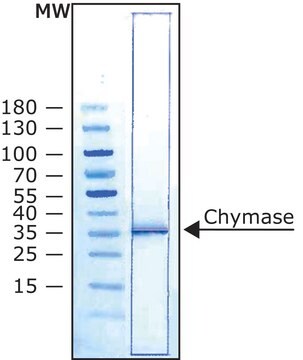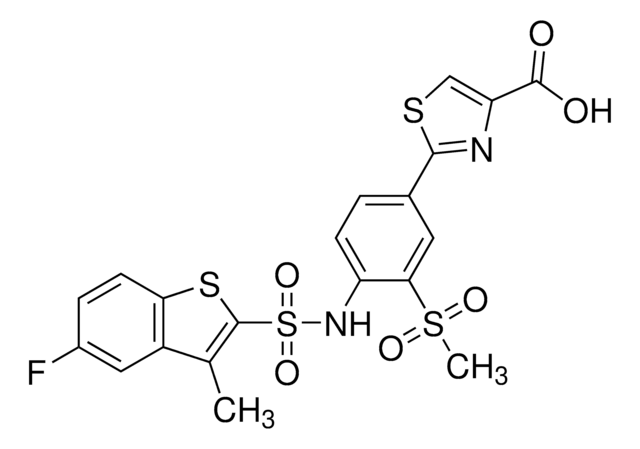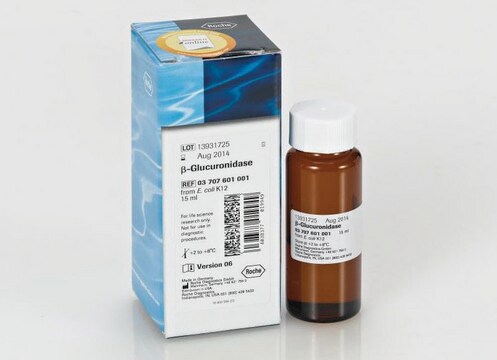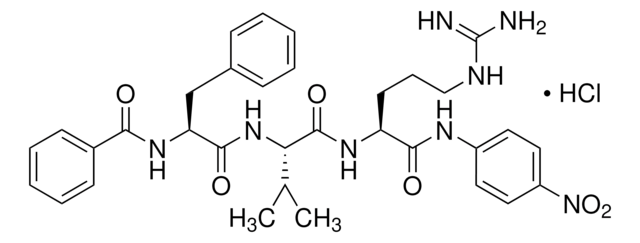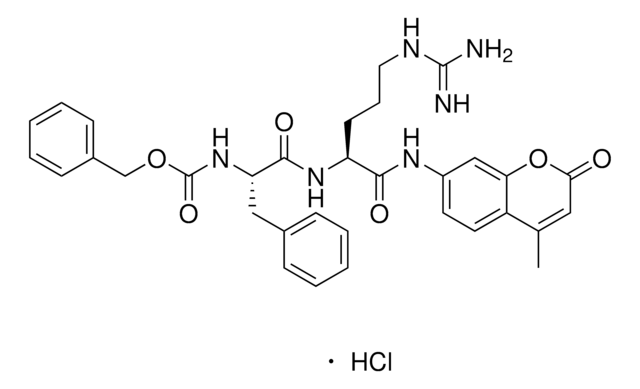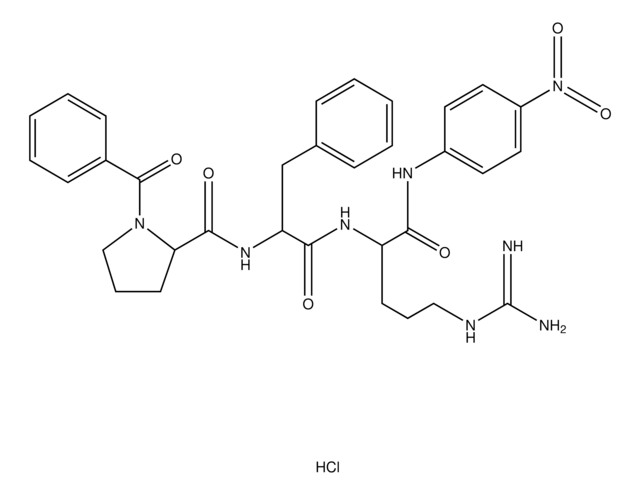MAB1254B
Anti-Chymase Antibody, clone B7, biotin conjugated
clone B7, Chemicon®, from mouse
Synonym(s):
Mast Cell Protease I
About This Item
Recommended Products
biological source
mouse
Quality Level
conjugate
biotin conjugate
antibody form
culture supernatant
antibody product type
primary antibodies
clone
B7, monoclonal
species reactivity
human
manufacturer/tradename
Chemicon®
technique(s)
dot blot: suitable
immunohistochemistry: suitable
isotype
IgG1κ
suitability
not suitable for Western blot
NCBI accession no.
UniProt accession no.
shipped in
wet ice
target post-translational modification
unmodified
Gene Information
human ... CMA1(1215)
General description
Specificity
Immunogen
Application
For optimal results, tissues or cytospin preparations should be fixed in Carnoy′s Fluid (60% ethanol, 30% chloroform, 10% glacial acetic acid). Not recommended for use on formaldehyde fixed tissue.
Not recommended for use on Western blots.
Optimal working dilutions must be determined by end user.
Inflammation & Immunology
Inflammation & Autoimmune Mechanisms
Physical form
Storage and Stability
Analysis Note
POSITIVE CONTROL: lung, heart, skin, placenta.
Other Notes
Legal Information
Disclaimer
Not finding the right product?
Try our Product Selector Tool.
Storage Class Code
12 - Non Combustible Liquids
WGK
WGK 2
Flash Point(F)
Not applicable
Flash Point(C)
Not applicable
Certificates of Analysis (COA)
Search for Certificates of Analysis (COA) by entering the products Lot/Batch Number. Lot and Batch Numbers can be found on a product’s label following the words ‘Lot’ or ‘Batch’.
Already Own This Product?
Find documentation for the products that you have recently purchased in the Document Library.
Our team of scientists has experience in all areas of research including Life Science, Material Science, Chemical Synthesis, Chromatography, Analytical and many others.
Contact Technical Service